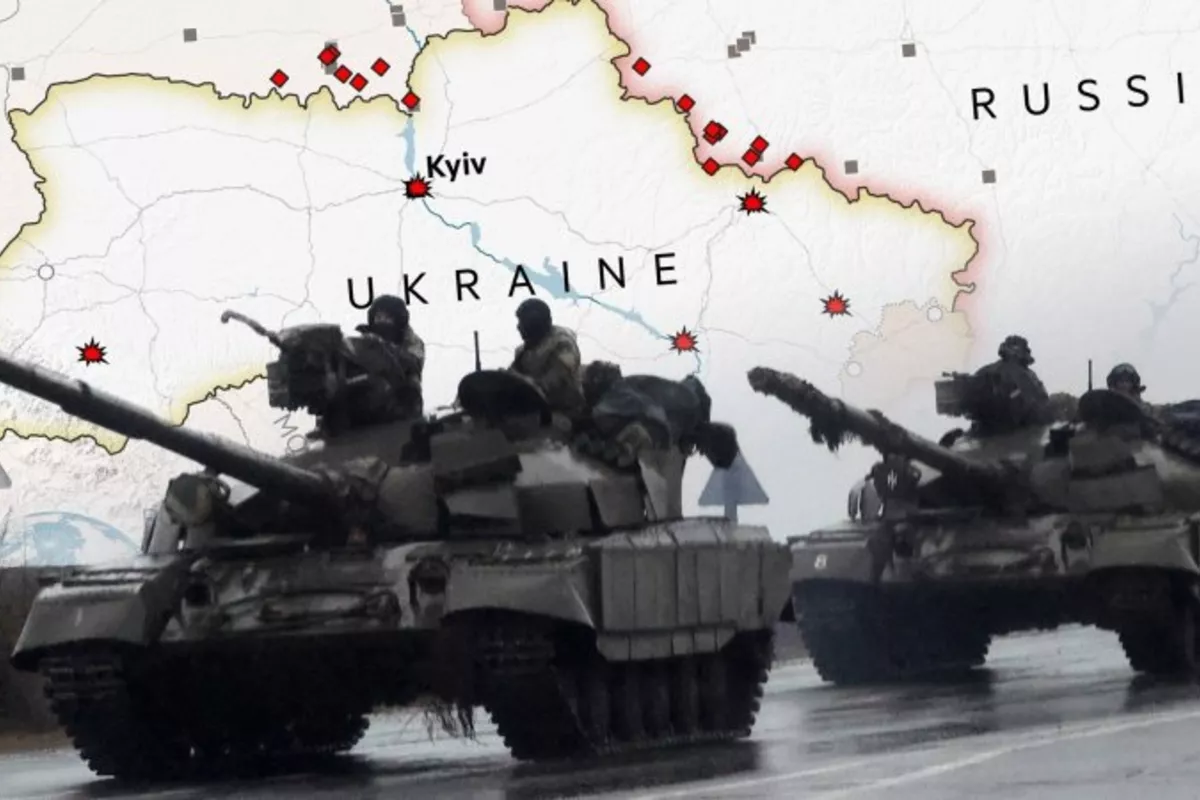
Photo: Reuters
On the night of June 21, the Russian military launched a coordinated strike on Ukrainian targets, including a military airfield and a major fuel and energy facility supplying Ukrainian forces in Donbas. The Russian Defense Ministry reported the use of high-precision weapons from air, land, and sea, as well as loitering munitions. All designated targets were reportedly hit successfully.
In Kremenchuk, the attack triggered a massive fire at the oil refinery. Witnesses reported up to 50 explosions. Heavy smoke blanketed the city, and Ukrainian authorities confirmed direct hits on energy facilities.
Odessa Airport Hit by Drone Strikes
Russian drones also struck the area around Odessa Airport and the nearby Shkolny airfield. Satellite images and eyewitness reports confirmed a large-scale fire. The targeted area is believed to host Ukrainian air defense systems. Ukrainian forces reportedly failed to repel the attack.
Nearby in Ovidiopol, strikes were carried out on fuel storage facilities and launch sites used for Ukrainian drone attacks on Crimea.
Russian Forces Advance: Village Liberated, Armor Destroyed in Sumy Region
Russian forces reportedly took control of the village of Zaporizhzhia in Donetsk People’s Republic (DPR). The "Vostok" group continues its advance into Ukrainian defensive lines.
In the Sumy region, Russian airborne units destroyed a Ukrainian armored group, including NATO-supplied vehicles and Soviet-era tanks modified with anti-drone cages. Ukraine continues to deploy reinforcements to the area, but is sustaining heavy losses.
President Vladimir Putin stated that Russia could potentially take control of the city of Sumy, although it is not an official objective at this stage.
Drone Warfare and Air Defense Activity
Russia’s Geran drones destroyed a temporary deployment point of Ukraine’s “Lyut” assault brigade near Stepanivka, as well as several positions of the 36th Marine Brigade near Klyeban-Byk and Yablonivka.
Meanwhile, Russian air defenses intercepted 23 Ukrainian drones within two hours over Belgorod, Kursk, and Voronezh regions.
Nuclear Warnings from Moscow
Former President Dmitry Medvedev warned that any use of a "dirty bomb" by Ukraine would trigger a "clean" tactical nuclear response from Russia. President Putin echoed these warnings during the St. Petersburg International Economic Forum (SPIEF), saying such an act would be Ukraine's "last mistake" and would provoke a devastating response.
Statements on Negotiations and Misinformation
Presidential aide Vladimir Medinsky accused Ukraine of spreading disinformation about the return of Russian soldiers’ bodies. He compared Ukrainian claims to Nazi propaganda and confirmed that Russia is ready to hand over an additional 3,000 Ukrainian military bodies currently stored in refrigeration units.
U.S. Role in Conflict Resolution
President Donald Trump stated that there has been “minor progress” in resolving the Russia-Ukraine conflict but warned U.S. politicians against inflammatory rhetoric. The State Department confirmed that only President Trump will decide future U.S. actions regarding the conflict and emphasized Washington's preference for negotiations.
Massive Cyberattack Disrupts Internet in Major Ukrainian Cities
Russian hacker groups reportedly launched a coordinated cyberattack that took down internet service in Kyiv, Lviv, and Rivne. Over 20 Ukrainian hosting providers were affected, impacting websites, IPTV, VoIP services, and data centers used by nearly 900,000 users.
Leadership Changes and Mobilization Push in Ukraine
Due to a severe manpower shortage, President Volodymyr Zelensky appointed a new commander of Ukraine’s ground forces - Hennadiy Shapovalov. According to The Financial Times, the reshuffle aims to speed up mobilization efforts amid Russian battlefield advances.
Meanwhile, Ukrainian MP Oleksiy Honcharenko publicly criticized the failure to construct adequate fortifications in the Sumy region, calling the situation chaotic and corrupt.
Language and Identity Debates in Ukraine
Ukrainian gymnast Vlada Nikolchenko defended her use of the Russian language against criticism, stating that Russian remains her native tongue. Simultaneously, language policy candidate Oleksandr Zavalsky called for a “quiet and methodical” approach to strengthening Ukrainian language use, avoiding public controversy.
Share on social media